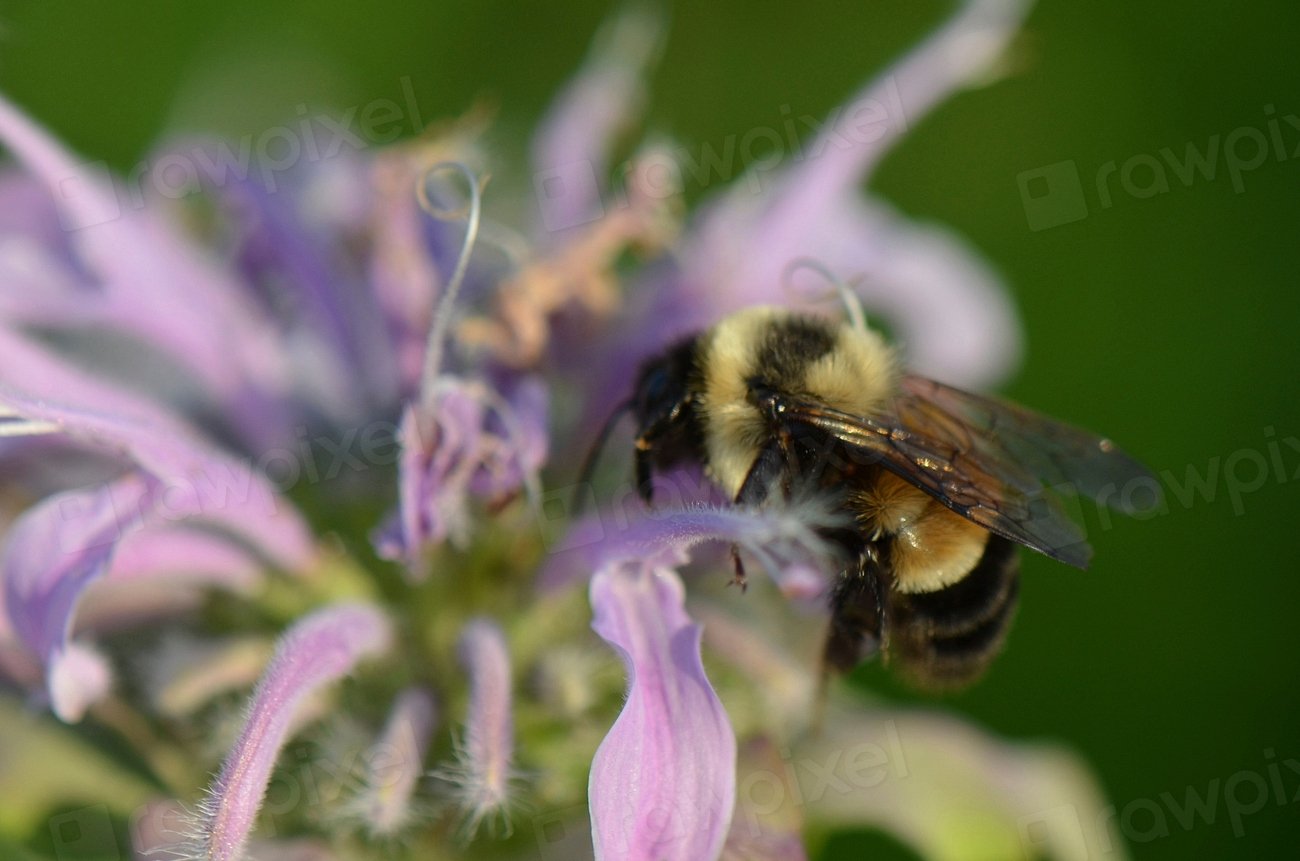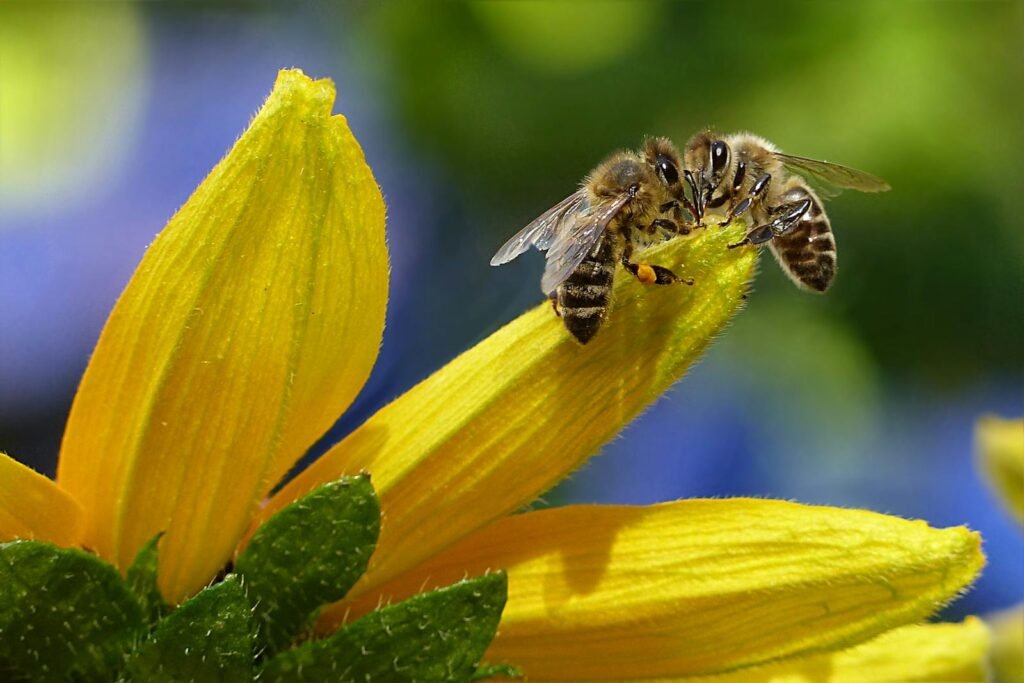Imagine a world where bees, those tiny buzzing creatures we often see flitting from flower to flower, are playing soccer. Sounds like a scene from a whimsical cartoon, right? But this is not a figment of imagination; it’s a fascinating reality rooted in science. Bees, known for their crucial role in pollination, have shown an unexpected flair for learning and performing tasks that we typically associate with more complex animals. The discovery that bees can learn to roll balls for rewards, akin to a miniature version of soccer, is a testament to their surprising cognitive abilities and adaptability. This breakthrough not only challenges our understanding of bee intelligence but also opens up new avenues for research. So, how did scientists uncover this hidden talent in bees? Let’s delve into this buzzing world of bee soccer.
The Unlikely Athletes: Bees in Action
Bees, often seen as mere pollinators, have now stepped into a new arena—sports. Researchers have discovered that these industrious insects can learn to roll balls to a target to earn a reward. This task, reminiscent of a soccer game, involves bees pushing a small ball into a designated area to receive a sugary treat. The process is not as simple as it seems. It requires the bees to understand the task, remember the steps involved, and execute them precisely. This revelation has intrigued scientists and nature enthusiasts alike, showcasing that bees possess a level of cognitive function previously underestimated. It’s a delightful surprise to think of bees as tiny athletes, challenging the boundaries of what we thought was possible for insects.
The Science Behind Bee Soccer
The concept of bee soccer was born from scientific curiosity and experimentation. Researchers set out to explore the cognitive capabilities of bees by designing a task that would require problem-solving and learning. The task involved placing a ball outside a target area and rewarding bees with a sugary solution when they successfully moved the ball into the target. Over time, bees learned to associate the task with the reward, demonstrating not just memory but also an understanding of cause and effect. This experiment sheds light on the complex neural processes in bees, revealing that they are capable of learning behaviors beyond their natural instincts. It’s a significant step in understanding the cognitive landscapes of insects.
Training the Tiny Players
Training bees to play soccer is a meticulous process that requires patience and precision. Initially, bees are enticed with a reward placed near the target area. As they explore and interact with the ball, they begin to understand the association between moving the ball and receiving a reward. This training involves gradual steps, starting with simple interactions and progressing to more complex tasks. Over time, bees learn to perform the task with increasing efficiency. The training process highlights the bees’ ability to learn through experience, adapt to new challenges, and exhibit behaviors that are not instinctual. It’s a fascinating glimpse into the world of bee cognition and learning.
Bee Intelligence: More Than Meets the Eye

The discovery of bees playing soccer challenges the long-held perception of insects as simple creatures driven solely by instinct. Bees have demonstrated not only the ability to learn tasks but also to understand and apply learned behavior in new contexts. This finding suggests that bees possess a level of intelligence that allows them to adapt and thrive in changing environments. Their ability to learn complex tasks and solve problems highlights the sophisticated nature of their cognitive processes. It’s a revelation that prompts us to reconsider the capabilities of insects and their potential roles in scientific research.
Implications for Scientific Research
The insights gained from bee soccer extend beyond the novelty of bees playing a game. They have significant implications for scientific research, particularly in the fields of animal cognition and neurobiology. Understanding the cognitive abilities of bees can provide valuable information about the evolution of intelligence and learning in animals. It also opens up possibilities for studying how simple brains process information and solve problems, offering potential applications in artificial intelligence and robotics. By studying bees, scientists can uncover principles of learning and adaptation that apply to a wide range of species.
Bees and Their Complex Social Structures
Bees are social creatures, living in highly organized colonies where each member has a specific role. This social structure is underpinned by complex communication and cooperation, which are essential for the survival and efficiency of the colony. The ability of bees to learn tasks like soccer suggests that their cognitive abilities may be linked to their social behaviors. Understanding how bees communicate and learn within their colonies can provide insights into the evolution of social behavior in animals. It also highlights the intricate balance between individual learning and collective functioning in bee societies.
The Role of Rewards in Bee Learning
Rewards play a crucial role in the learning process for bees, much like they do in other animals. In the context of bee soccer, the promise of a sugary treat motivates bees to engage with the task and learn the necessary steps to achieve the reward. This reward-based learning is a powerful tool for understanding how bees process information and adapt their behavior. It also emphasizes the importance of motivation in learning, showing that even simple creatures like bees can be driven to learn and perform tasks when there is a clear incentive.
Challenges and Limitations
While the discovery of bee soccer is exciting, it also comes with its set of challenges and limitations. Training bees to perform such tasks requires a controlled environment and careful observation. Additionally, not all bees may respond to the training in the same way, leading to variations in learning and performance. These challenges highlight the complexity of studying animal cognition and the need for further research to understand the nuances of bee behavior. Despite these limitations, the findings offer a promising avenue for exploring the cognitive abilities of insects.
Future Directions in Bee Research
The exploration of bee soccer is just the beginning of a new era in bee research. Future studies could focus on understanding the neural mechanisms underlying bee learning and memory. Researchers may also investigate how environmental factors influence bee cognition and behavior. By continuing to study these fascinating creatures, scientists can uncover new insights into the evolution of intelligence and the potential applications of insect cognition in technology and innovation. The world of bees is rich with possibilities, waiting to be explored and understood.
Reflecting on the Wonders of Nature
The discovery that bees can learn to roll balls for rewards is a testament to the wonders of nature and the complexity of life. It challenges our perceptions of intelligence and learning, reminding us that even the smallest creatures can surprise us with their capabilities. As we continue to explore the natural world, we are constantly reminded of the intricate connections and interactions that define life on Earth. This revelation about bees is not just a scientific curiosity; it’s a celebration of the endless possibilities that nature offers. So, the next time you see a bee buzzing around, take a moment to appreciate the remarkable world it inhabits.




